Premium Only Content

Polar bears relax together for some play time and a nap
Polar bears are among the largest land animals in North America. They are the largest predator, growing up to 2.8m (9 feet) in length and weighing as much as 800kg (1760 lbs). Kodiaks, a subspecies of the Alaskan brown bear can grow almost as large. They are powerful and formidable animals when full grown, but they begin life as tiny cubs that weigh only 1kg (2.2lb) and they are toothless. Without the protection of their mother, the cubs would not have a chance at survival. Typically, polar bears have twins each year, increasing the odds of at least one cub surviving. Some polar bears do give birth to one or three cubs, but this is unusual. The cubs will nurse on mother's milk, growing rapidly in their first months. A polar bear produces a rich, calorie dense milk that is 31% fat.
Polar bears are perfectly adapted to life in the cold water, where they spend most of their time. Despite being land animals, they are often referred to as marine mammals. Their large paws and streamlined bodies make them very adept swimmers.
Despite appearing to be white, polar bears are actually black in colour. They have hollow hairs that reflect light in a way that makes them appear white, but the specially designed hair reflects sunlight down onto the black skin where it can be absorbed as heat.
Polar bears eat a variety of food but seals make up the largest part of their diet. Ambush predators, they often wait at the breathing holes of seals or the birthing chambers. For this reason, a polar bear is dependent on sea ice for finding food.
Polar bears have paws that ideally suited for life on the ice. Equipped with tiny bumps called papillae, and tufts of fur between their pads, the paws grip the ice extremely well. Their claws provide added traction, allowing them to move easily and quickly on even the most slippery surface.
Polar bears feast on seals and store fat, allowing them to go as long as 8 months without food. This is particularly important for female polar bears that remain in their den to nurse their cubs for long periods.
Referred to as Nanuq by the Inuit people, the word for polar bear actually means the ever wandering one, or animal worthy of great respect. Considering their massive size and unique adaptations that allow them to live in one of the world's most difficult climates, this name seems very fitting.
-
 1:45
1:45
WildCreatures
17 days ago $1.03 earnedGiant manta rays surround scuba divers in Galapagos Islands
3.06K2 -
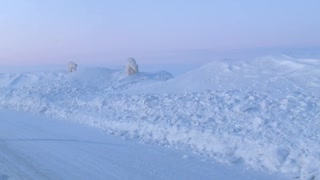 1:38
1:38
ViralHog
4 years ago $0.04 earnedPolar Bears Wander Alaskan Road
542 -
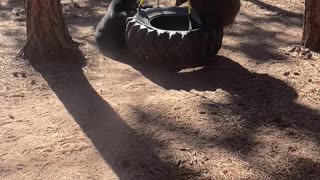 1:26
1:26
ViralHog
4 years ago $3.32 earnedBaby Bears Play on Tire Swing
3.27K1 -
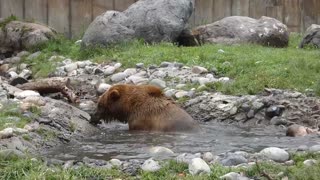 0:49
0:49
ViralHog
4 years ago $0.65 earnedRescued Bears Play About in Encounter
1.08K -
 4:17
4:17
ViralHog
4 years ago $0.14 earnedWolf, Lion and Bear Play Together in Pool
4.04K1 -
 0:47
0:47
ViralHog
4 years ago $0.03 earnedBlack Bears Enjoy Family Time in the Treetops
2761 -
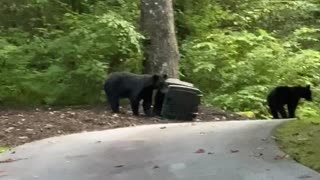 0:27
0:27
ViralHog
4 years agoBears Grab Garbage To Go
2523 -
 0:52
0:52
ViralHog
4 years ago $2.80 earnedBears have a late night pool party at this home
10.6K11 -
 5:26
5:26
ViralHog
4 years ago $0.10 earnedHungry Bears Have a Heated Moment
9541 -
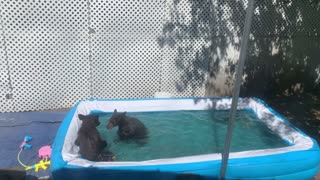 0:31
0:31
ViralHog
4 years ago $0.52 earnedBears Stop by for a Backyard Swim
5.31K2